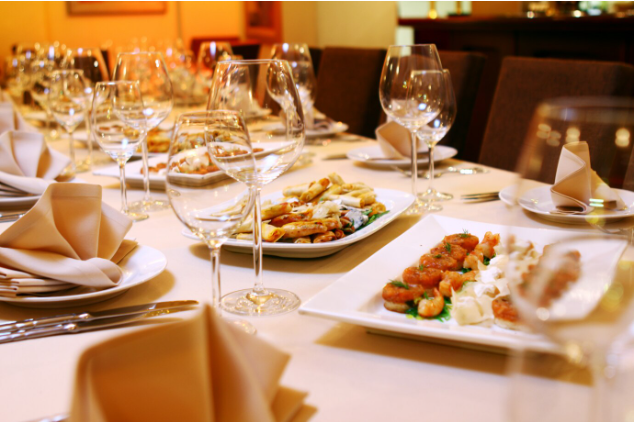Navigating the UK Roads: Important Guide For
Navigating the UK Roads: Before you set up your gears a...

Many Nigerians find the UK favourable and desirable for various reasons, which include education, career opportunities, lifestyle, and a vibrant society. However, the cultural differences can be challenging, making adaptation to British culture overwhelming. Understanding the cultural code between these countries is essential for smooth navigation and overcoming potential pitfalls. Therefore, this guide aims to decode the cultural code, offering insights and practical tips for Nigerians to navigate life in the UK seamlessly.

Language and communication are part of the cultural differences that hinder the adaptability of Nigerians to British society. Although the commonly spoken language in both countries is English, there is a significant difference in communication style and uniqueness.
Unlike the Nigerian English language, which tends to be more indirect and high-context, the British language appears to be direct and low-context. This means that communication is conveyed explicitly, clearly, and in detail, relying more on spoken or written words than body language. Understanding this difference helps in cracking the cultural code and improving effective communication.
Read Also: Visa Rules for Skilled Worker Nigerians in the UK
The humour between Nigeria and the UK varies significantly, making it challenging for Nigerians to navigate British society. Conversely, understanding this nuance between these countries ensures effective adaptability to the traditions, values, and social norms of British society. For an in-depth analysis, check out our guide on bridging the gap between Nigerian Humour and British humour.

In both nations, greetings are very important; however, the greeting codes differ from one another. In Nigeria, greetings are often elaborate and formal, especially with elders and authority figures. On the other hand, British greetings are brief and informal.
Although the British greetings are informal, they are conveyed reasonably and politely. Generally, greetings in the UK start with a friendly handshake with a simple “hello” or “hi.” Conversations often end with phrases like “See you later,” “Take care,” and more.
Britons value their personal space. Standing too close to someone can be seen as intrusive. Maintaining an arm’s length distance during conversations is advisable. Additionally, be mindful of body language; direct eye contact is a sign of attentiveness and sincerity.
Nigerian skilled workers in the UK need to crack the cultural code in workplaces in order to maintain professionalism. Respecting colleagues in the workplace, especially senior colleagues, is crucial, often with titles like Mr., Mrs., Dr., Prof., etc. Although respect for authority and seniority is part of Nigerian workplace culture, it is important to know that the UK values high standards of behaviour and performance.
For more information, read our article, “British Workplace: Know the Cultural Nuances in the UK.”

There is a need to understand the cultural code when it comes to dining, as there is a structured difference between Nigeria’s and the UK’s.
In the UK, it is common to wait for everyone to be served before starting to eat. This is considered good dining etiquette, especially when you are invited over. Conversely, Nigerian dining etiquette is quite the opposite; it’s not a must to wait for everyone before you begin to eat. Although, in some households, it’s been practised, it’s not the major dining etiquette.
It’s worth noting that Nigerians’ cuisine is known for its diverse use of spice; thus, meals in Nigeria can be quite spicy. In contrast, meals in the UK are less spicy, with a focus on more subtle flavours. On top of that, dining in the UK is more formal than dining in Nigeria.
Additionally, dining in the UK is generally more formal compared to Nigeria. In the UK, there are often specific dining etiquettes and customs to follow, such as the use of cutlery and table manners, which might not be as strictly observed in Nigeria. Understanding these differences can help navigate the cultural nuances of dining in both countries.
Britons are known for their punctuality and strict adherence to time schedules. Nigerians, on the other hand, are often perceived as more relaxed about time and may arrive late to events, sometimes even two hours after the event has started. Punctuality is highly valued in the UK, and being on time is considered important.
The UK is home to a wide variety of festivals and celebrations, which include the New Year, Burns Night, Patrick’s Day, Bonfire Night, Christmas, and more. Understanding these celebrations and festivals helps with participating in social activities and building stronger relationships.

Whether at the bus stop, in a shop, at a bank, or at a train station, it is essential to always queue and wait for your turn. This is one of the cultural codes in the UK that many Nigerians might find quite challenging because they are fond of jumping the queue. Therefore, in order to adapt to UK norms and blend with society, you must maintain orderliness.
The UK boasts an extensive public transportation network, including buses, trains, trams, bicycles, and the famous London Underground. As a Nigerian, familiarizing yourself with the transport system can make transportation easier. In addition, if you choose to drive, remember that Britons drive on the left side of the road, and obtaining a UK driving license might be necessary. Learn more on how to Navigate the UK Roads as a Nigerian Driver.
The UK offers a plethora of leisure activities, from visiting historic sites and museums to enjoying parks and countryside walks. Joining local clubs or groups that share your interests, such as sports, music, or arts, can help you integrate and make new friends.

Dating in the UK is quite different from what you may have experienced in Nigeria. In Nigeria, the age of consent varies by region and law, but it is generally recognized as 18 years old. In contrast, the legal age of consent in the UK is 16 years old, regardless of sex and region.
Furthermore, it’s often said that girls mature faster than boys, which can sometimes make it difficult to gauge their age accurately. This can be particularly challenging in dating in the UK, where dating or flirting with a minor can result in serious criminal charges. Therefore, it’s always a good idea to ask about age before dating to ensure that they are within legal boundaries.
Unlike Nigeria, the British have four distinct seasons, which include spring, summer, autumn, and winter. Understanding the seasons is important in order to dress appropriately at the right time. Furthermore, you must invest in a good raincoat and an umbrella, as the weather is quite unpredictable.
Adapting to a new culture is a journey filled with challenges. Understanding and embracing the cultural differences between Nigeria and the UK can lead to a more enriching and fulfilling experience. By being open-minded and proactive, you can navigate this transition smoothly. Remember, numerous resources and support networks are available to help you along the way. Embrace the adventure, and make the most of your new life in the UK!